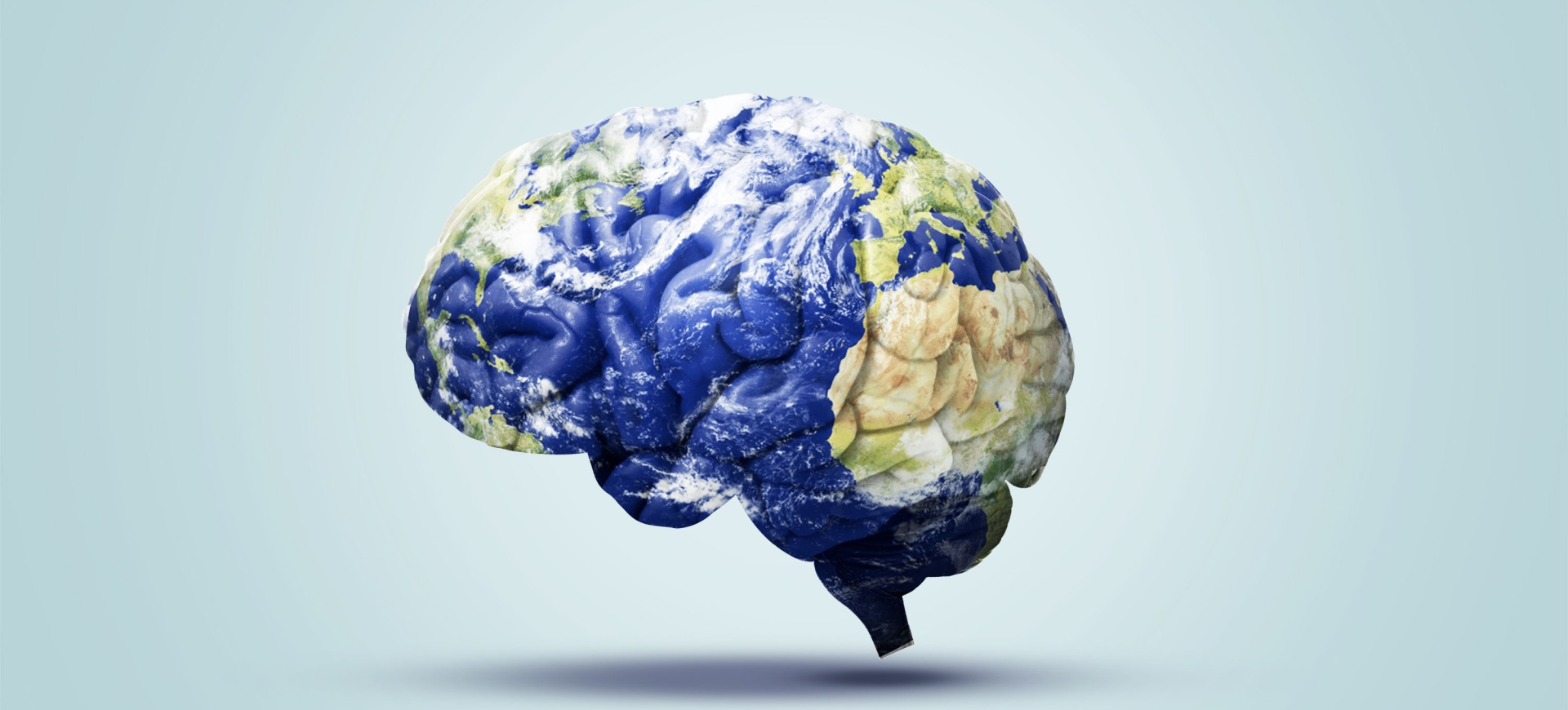From dementia to ‘supermentia’
Better, healthier brains can help build a better, healthier world, but while information and aspiration may be abundant, resources and synergy are scarce
Human history has been shaped by our individual and collective brains, moulded by our actions and interactions with others, and by the environment. Our brains are at the core of our problems and our solutions. In the digital age and in a knowledge-based economy, healthy brains have become of paramount importance. Fostering them needs to be lifelong and constant, as advocated by the World Health Organization, since a looming demographic crisis has made this need urgent.
A crisis in the making
The world’s average life expectancy in 1960 was 51 years; today it is 72 years. In 1960 the birth rate was five children per woman; today it is 2.3 children. In Japan, the most aged society, the average life expectancy is 85 years and the birth rate is 1.3 children.
As life expectancy moves upwards and the birth rate downwards, a demographic crisis is in the making. There will be fewer young people to contribute to the economy and more older adults with disease and disabilities. Neurological disorders have become the leading contributors to disability-adjusted life years. The pandemic has left us with long Covid with unknown long-term consequences and has worsened mental health problems, compounded by natural disasters and wars.
These problems demand holistic ‘brainy solutions’, not only from academics and political leaders, but from all. Anyone dealing with human behaviour and motivation should begin thinking about how these problems relate to the brain and anyone dealing with the brain needs greater understanding of the behavioural consequences of healthy and afflicted brains. Moreover, these interactions must be understood in the context of interaction with others and the environment.
A global brain health plan
The WHO has put forth a global brain health plan across the lifespan. Several countries have developed national brain plans and various organisations have launched brain health programmes. A common limitation is that they are rich in information and aspiration, but scant on supportive resources and synergy. Much could be gained by integrating them and focusing on an overarching goal such as ‘holistic brain health for all now’. Holistic brain health is a state of optimal cerebral, mental and social well-being in a safe, healthy and supportive environment. This combines, in one sentence, all our major problems and solutions. A safe and healthy environment implies addressing the roots of conflicts and the causes and consequences of climate change. A supportive environment means redressing the growing inequalities among and within societies. To tackle these challenges, we need healthy brains, and mental and social health. In the digital age and a knowledge-based economy – where human brain capital is the basic currency – lifelong learning and its application are essential.
This integration is necessary to achieve the overarching vision of holistic brain health for all, for maximising human creativity, productivity, development and evolution. This common vision will create synergy among all individuals and organisations that share the vision. In this era, when humans have created artificial intelligence with phenomenal capacities, our focus should be on enhancing individual and collective human intelligence. We need to understand why dementia occurs, and also to unravel the determinants of superlative human intelligence towards achieving ‘supermentia’. We need to characterise various types of human intelligence and understand the genetic and environmental factors that could be optimised to achieve supermentia in the highest possible number of humans. This may be facilitated by various forms of brain computer interfaces. This will require integration among all spheres of human development and technological advancement.
Towards integrative solutions
Integration could occur around the concept of holistic brain health. At the global level the WHO could do more to customise its recommendations beginning with ‘best buys’, provide more guidance about individual and collective motivation, and share strategies for implementation.
Also at the global level, primary health care forms the essential basis for surveillance, prevention, care and rehabilitation. At the national level, brain plans are a first step to action. These plans could serve as an intersectoral integration of non-governmental organisations, communities and individuals.
Integration avoids duplication, identifies gaps and allows economies of scale. Integration ensures that the whole is greater than the sum of its parts by facilitating a synergistic yield that has a greater impact than the additive effects of isolated efforts. Perhaps the most promising is at the local level, in populations small enough to have a sense of community. The approach needs to be comprehensive to identify the most important and addressable problems, and thus is customised and cost-effective. Additionally, the ABC of whole health – activity and rest including sleep, a balanced diet, and connecting with others – needs to be implemented. It should be simple: identify the minimum that yields the maximum to assure that the majority of the population can practise their ABC.
‘Think globally, but act locally’ continues to be good advice. Small gains in a population are equivalent to big gains in a minority of individuals. For example, a 2 mmHg decrease in systolic blood pressure is desirable but barely meaningful. An equal decrease at the population level translates into a 24% reduction in the occurrence of stroke. A stroke doubles the chances of developing dementia. So implementing the ABC addresses the common risk factors of stroke, ischemic heart disease and dementia, while promoting holistic brain health, productivity and well-being.
So, we need to:
1. Adopt holistic brain health as the overarching integrating goal by all.
2. Fund the development of a core, actionable holistic brain health ‘Wikipedia’.
3. Pilot new approaches to promote holistic brain health at the global, national and community levels.
By promoting holistic brain health for all by all, we will facilitate integration, resulting in better brains to build a better world.












